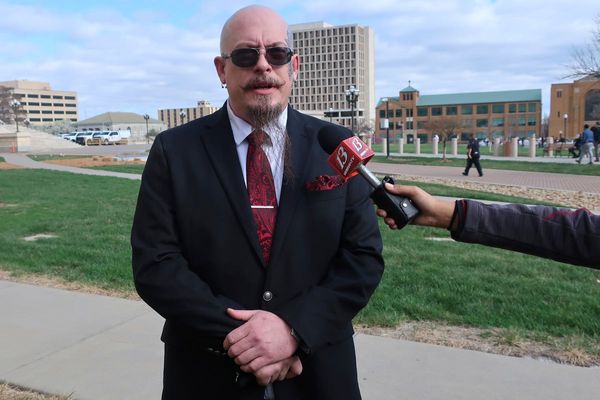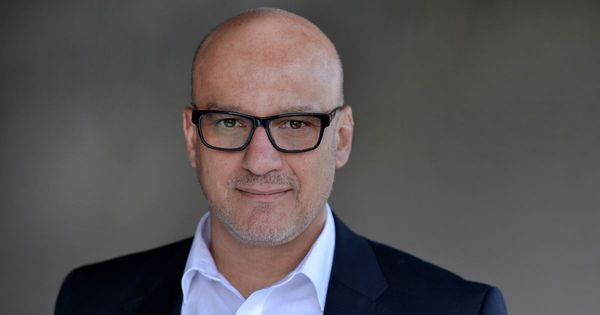Gary Hirshberg's life mission is to help save the planet by promoting organic food and sustainable living. But the greatest leadership moment for the Stonyfield Farm co-founder arguably came at the hands of a most unlikely partner: Walmart.
At Stonyfield, whose Stonyfield Yogurt is the nation's largest organic yogurt brand, Hirshberg found himself facing an existential dilemma. Walmart came knocking at his door to inquire about selling Stonyfield yogurt in its stores. Hirshberg knew the horrendous reaction such a move would surely generate from his brand's left-leaning core consumers. He asked his biggest customer, Whole Foods, what it thought of the idea. The grocery chain's resistance shook him.
"That's when I pushed back and asked my team: 'Why did we make this (product) in the first place?'" said Hirshberg. "Our mission is to promote better health, better nutrition, and a better planet for all — not just for the rich."
So Walmart became one of Stonyfield's biggest customers. And Stonyfield's world didn't end. It grew.
"It was Gary's fierce determination and unshakable confidence that carried the company through," said Bob Burke, former vice president of sales and corporate development at Stonyfield.
Start Small Like Gary Hirshberg
Never mind that Stonyfield Farm started as a seven-cow operation way back in 1983. By 1990, it had annual net revenue of $4 million. And revenue ballooned to $356 million when Hirshberg sold the company in 2012. The company's iconic single-serve organic yogurt cup kicked off the business' growth. But new products followed, capturing new market segments each year.
Over his 23-year tenure, the business had a strong compound annual growth rate of 21%. And while he is co-founder of the Stonyfield brand, Hirshberg arguably helped blaze the trail for the entire organic food industry. When he first started the brand, national organic food sales were roughly $5 million dollars annually and now hover at upward of $60 billion.
Hirshberg's very personal embrace of organic food in his life and in his work has impacted hundreds of farmers and millions of consumers.
His legacy is a seed that has been deeply planted. True leaders don't just lead. They take root and make a difference.
Build A Simple But Inspirational Mission
Back in the 1980s, Hirshberg wrote a mission statement for Stonyfield with four pillars: Healthy Food. Healthy People. But also, Healthy Planet. Healthy Business.
He never wavered from these tenets. Employees took notice. "We made our decisions, both long term and short term; strategic and tactics, with them in mind," said former Stonyfield Chief Financial Officer Diane Carhart.
Under two different French owners — first dairy company Danone and then fellow French dairy giant Lactalis, which paid $875 million for Stonyfield — the brand's mission has remained rock solid. Hirshberg is still a part-time paid advisor with the smile-worthy title of "chief organic optimist" even as Stonyfield celebrates its 40th anniversary this year.
What drew Hirshberg to organics?
When he was a young boy growing up in New Hampshire, his family regularly bought eggs and chicken from the organic farms that surrounded them. "I grew up seeing the benefits of the ecosystem of organic farmers," he said.
His entrepreneurial family owned shoe factories in New Hampshire. He took that family bent for entrepreneurship and began to focus it on his personal interest in planetary issues like depletions of biodiversity and, yes, climate change. At the time, federal funding for academic study in areas like renewables and organics was being slashed under former President Ronald Reagan, so Hirshberg took it upon himself to go another nonacademic direction.
"We thought that a better way to address global issues was by putting consumers in the driver's seat of making conscientious choices," he said. "With Stonyfield, we introduced a new way of thinking to thousands of people."
Give Employees A New Way Of Thinking
While he was Stonyfield's CEO, Hirshberg also introduced a new way of thinking to his employees: staying calm under intense pressure. At one point in 1987, he vividly recalls, a struggling Stonyfield was losing $25,000 per week on annual sales of a paltry $3 million. "We had a wonderful company, but no demand," he said. It wasn't easy to sell 49-cent organic yogurts in a world of giant, mainstream competitors selling 29-cent conventional yogurts.
Hirshberg instinctively knew the company would find its niche — because it was literally inventing the organic sector at the time — but he stayed calm and continued to reassure employees who had doubts. "That sense of calm was critical as a retention tool," he said.
As an unwavering leader — particularly in Stonyfield's early years — Hirshberg had to stay on mission even as his company kept running into bumps, bruises, and substantial challenges. "The key was to always stay true to our moral compass," he said. In other words, never stray from the brand's mission to help make the world a bit better.
Make The Tough Decisions
On occasion, that meant making extremely difficult staffing decisions. As the company began to grow, he brought in four extremely accomplished executives to help quickly move the company forward. But along with their professional expertise came a rash of infighting and unacceptable backstabbing, he recalls.
"I finally had one-on-one meetings with each of them — and two of them didn't stick," he said.
Sometimes a leader leads best by owning up to his own mistakes, even if it's admitting that he's hired the wrong people. "I was able to right the ship by holding to our mission and our moral benchmarks," he said.
Hirshberg was way ahead of his time on climate impact issues. Back in the early 1990s, Stonyfield was among the first consumer product companies to do a complete map of its own carbon footprint, he says.
Pay It Forward
Nearly 25 years ago, Hirshberg also chose to actively seek out and teach the next generation of entrepreneurs who care about sustainability. He created the Hirshberg Entrepreneurship Institute, which is an intensive three-day boot camp that has helped hundreds of like-minded entrepreneurs become both sustainably and financially successful. "I was getting so many daily calls from entrepreneurs about how to lead with a mission, so I created this boot camp," he said.
His wife Meg is a do-gooder, too. She's a 22-year survivor of breast cancer and founder of The Anticancer Lifestyle Foundation, a nonprofit dedicated to promoting evidence-based lifestyle transformation for cancer survivors.
When Hirshberg, 68, and his wife hang out with their two-year-old granddaughter, Lyla, they fully realize how their actions impact the next generation. That's one reason why, last year, Hirshberg launched the Northeast Organic Family Farm Partnership, a collaboration of farmers, processors, and activists. The group financially pledges to direct their purchases toward brands that have partnered to help save 135 at-risk organic farms.
Know What Matters Most
In the end, says Hirshberg, it's not what's in your bank account that matters. "It's important to choose a mission," he said. That can be fighting cancer. Or fighting poverty. Or fighting climate change. Pick a worthy cause, he says, and fight for it.
"You need to check in with yourself and ask, 'What difference have I made?' " he said.
Hirshberg's Keys
- Co-founder of Stonyfield Farm, the nation's largest organic yogurt brand.
- Overcame: Innate conflict between financial growth and following sustainable business practices.
- Lesson: "You need to check in with yourself and ask: 'What difference have I made?'"










